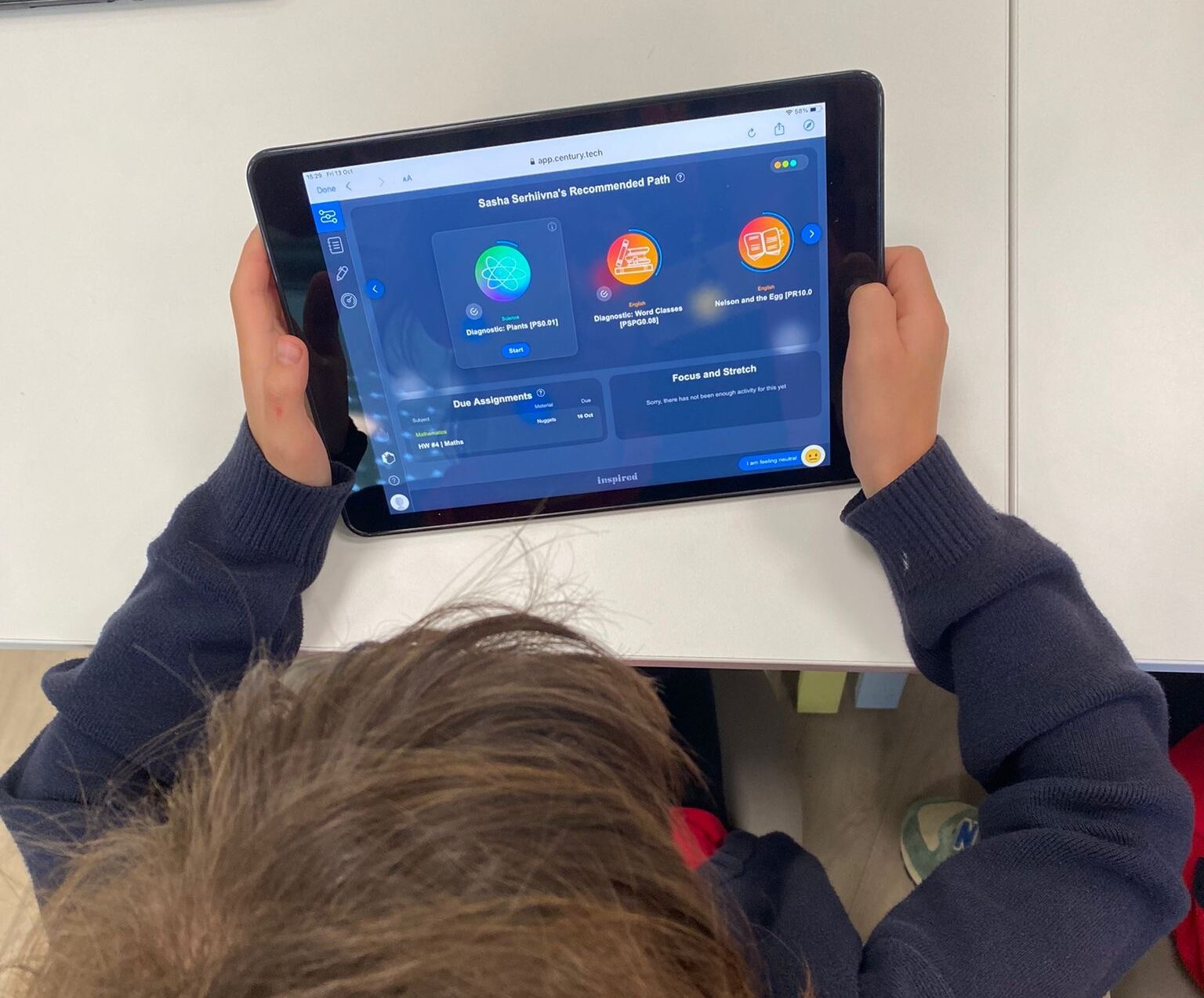What is the future of education?
Estimated reading time: 3 minutes
How can we improve education for all? CENTURY’s Head of Schools Tom Thacker discusses the challenges and opportunities the education sector faces in the modern world.
The UK is renowned for having a world-class education system, yet is underperforming when compared with its peers. Fifteen year olds in the UK are ranked 22nd and 27th respectively in reading and maths when compared with other OECD countries in the Pisa tests, trailing behind much smaller economies such as Estonia, Poland and Vietnam. With 76% of teachers seriously considering leaving the profession due to their ‘unmanageable’ workloads, schools facing severe budget cuts and increasing class sizes it can begin to feel like schools are reaching crisis point.
What can be done to improve this?
We know that students benefit from immediate and constructive feedback; we know that differentiated lessons enable students, who learn in different ways and at different speeds, to make similar progress; we know that accurate data can be used to identify key strengths or areas for improvement more quickly. We also know that doing all these things for all students all of the time is hugely time consuming. As teacher numbers reduce and student numbers increase – pupil numbers are expected to grow by one million in the next decade, leading to a shortage of 30,000 teachers by 2020 – and with teachers spending up to 60% of their time on admin and data management, the time they have available to dedicate to each student is severely limited. This is resulting in a one-size-fits-all method of teaching often being used, leaving some students struggling and others under challenged. Clearly something needs to be done to help education as it is currently failing both the teachers and the students.
But what is the answer?
When we look at other industries, such as travel, healthcare and retail, there is one thing that has helped revolutionise them all – artificial intelligence (AI). AI has made them more efficient, more personalised, helped to reduce their costs and allowed them to make more data driven decisions.
For years now websites have been gathering data on our online behaviour. This data generates insight into who you are, allowing the technology to learn about your preferences, likes, dislikes and identify your needs. Google uses this technology to learn about your search preferences, Amazon uses it to make relevant shopping recommendations and advertisers use it to place relevant adverts in key places. This technology can be applied to classrooms to learn how a student learns and provide them with a personalised education. By doing so, the time teachers need to spend analysing each student and planning differentiated lessons would be reduced, allowing them more time to focus on the learning and development of the student. Additionally, the students would benefit from a personalised education that is tailored to their unique learning needs, the end result being improved learning outcomes – the aim of any teacher or school.
Imagine a classroom where a teacher is armed with real-time data on each student, allowing them to quickly and easily identify which ones are struggling, which ones need pushing and what topics need to be revisited. This would super-charge teachers, allowing them to make timely and targeted interventions and make evidence based decisions in the classroom. Students would no longer have to wait weeks for work to be submitted, marked and returned for issues in their learning to be identified. Teachers would be reacting to up to the minute data, just like managers in other industries are. This is the future of education.
As education reaches crisis point and people look for a solution, there is a slow emergence of AI in education. Whilst it is a relatively new phenomenon, there are a few revolutionary AI learning platforms that are making waves. So next time you despair about the lack of time you have to plan a differentiated lesson, the amount of hours you spend marking, or the lack of time you have to recommend next steps to a student, remember – there is a solution. AI in education is new, it’s exciting and it could help solve some of the industry’s biggest pain points.
Written by Tom Thacker, Curriculum Lead at CENTURY Tech. Tom began his career as a Teach First maths teacher in the Midlands. Since then he has been Head of Department, Assistant Principal and School Governor. Tom then moved to Uganda where he taught for a further two years, before moving back to the UK and joining CENTURY.
CENTURY in the news
View all News
-
Blog
1st July 2025
The Power of Personalised Learning: Tailoring Homework for Every Student
In this post, our in-house neuroscientist, Alice Little, delves into a phenomenon every teacher witnesses daily - the extend to which student understanding can vary. She explores the cognitive science behind why a 'one-size-fits-all' approach to teaching and learning doesn't work,…
Read more
-
Case studies
30th June 2025
Inspired Italy share why they think CENTURY is the perfect tool…
CENTURY’s Jordan Scearce and Charles Wood spoke to a numbers of senior leaders from Inspired schools in Italy about how the AI-powered platform can complement the IB.
Read more

